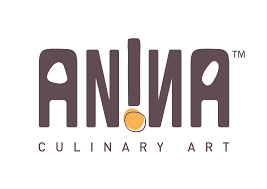Culinary art and upcycled veggies disrupt the ready meal market with inspiring format
Rishon LeZion, Israel – FoodTech start-up ANINA Culinary Art, Ltd. is reshaping the future of ready meals by merging art with technology through a culinary experience of meals from upcycled vegetables. Each whole “meal-in-a-pod” is all-natural, loaded with nutrients, and made from so-called “ugly” vegetables.
ANINA in a Nutshell
The ANINA pod is a complete meal made from vegetables that have been rejected for sale due to a less-than-perfect appearance—a major source of fresh produce waste. The new, convenient, ready to cook format is a single-size portion that allows for a quick and nutritious meal in just a few minutes. It can be cooked on the stovetop or in a microwave. Each disc-shaped container holds two full cups of vegetables—40% of an adult’s daily nutritional requirements—and is ideal for consumers seeking a fast nutritious & delicious meal solution at work or home.
Watch the video here
The ANINA range was launched in Israel with three recipes:
- Pasta Primavera— vegetables, Italian herbs, and pasta
- Mediterranean bowl—vegetables, bulgur wheat, and black lentils
- Vietnamese bowl—rice noodles and vegetables
Each ANINA pod provides a plant-based meal replete with protein, high in fiber, and free from colorants or preservatives. The products are currently available online, at premium and boutique bakeries, and at co-working spaces outlets.
Dressing Food with Tech
The technology is patented, from the food-grade lamination process to the pod structure. The unique technology forms flexible sheets from fresh vegetables . “We produce these vegetable sheets with minimal processing, preserving the flavors, aromas, colors, and textures of the original vegetable,” says Mor Wilk, VP of R&D for ANINA. “The heart of our technology is the creation of the layers. “The heart of our technology is the creation of vegetable sheets. The flexibility of these sheets enables us to form any 3D structure and create any recipe in a decorative pod, each set to its unique controlled cooking time.”
The container’s outer shell is made from a layer of dried vegetables or fruits, while the inner core contains a range of natural ingredients. The ingredients, of course, vary according to each recipe.
“ANINA is making a real impact on the food industry by mitigating food waste and turning it into innovative, plant-based products with an exciting look and feel,” avers Anat Natan, ANINA’s co-founder and CEO. “The result is a balanced, delicious meal with all the nutrients you need. ANINA is responding to a growing demand for making the most of unwanted veggies, and turning them into something artistic that appeals to the eye and palette. Following the successful product launch in Israel and the positive feedback we received from American millennials, we are set to bring our products to the US.”
From Market to Start-up
Two industrial design students, Esti Brantz and Meydan Levy, were concerned by the huge amounts of perfectly good fresh produce that typically gets tossed in the trash due to cosmetic reasons such as size, shape, color differences, or similar perceived imperfections. Living across from a bustling farmers market located in the heart of Jerusalem, surrounded by fresh produce and herbs carrying exotic flavors and aromas, the duo sought a solution to the food waste challenge. They acquired leftover vegetables at the market and spent two years testing various techniques before settling on one that worked best to preserve the components of a heat-and-eat meal. This led to the design of an entirely new food concept.
The green pod
Large quantities of food are wasted because of an emphasis on appearance. In fact, half of all produce in the US is thrown away because it is less than “picture perfect” for selling. This equates to a staggering 60 million tons of completely fine fruits and vegetables discarded every year. [1] Food losses mean lost income for farmers and higher prices for consumers.
Upcycling provides a highly sustainable solution to food waste while supporting a circular economy. The ANINA team is on a continuous mission to find new ways to improve efficiency, prevent waste, and reunite consumers with nutritious food. “We buy leftover produce directly from farmers,” explains Brantz. “This provides them income for vegetables they usually have to discard.”
“We’re changing the way we eat,” adds Natan. “And we’re shaping the future for a meaningful culinary consumer experience. The ANINA meal capsule also addresses today’s fast-paced lifestyle, which too often forces consumers to compromise on the quality of the food they eat.
The Team
ANINA was founded in June 2020 by Anat Natan, Meydan Levy, and Esti Brantz. Natan, the CEO, brings more than 20 years of experience in marketing and business management for CPG companies such as Nestlè and Tnuva. Natan has an MBA, specializing in marketing and business enterprise, a BA in economics and communication from Hebrew University in Jerusalem, Israel, and graduated from culinary school.
ANINA has secured USD3.3M in a safe round from Strauss Group by The Kitchen Hub, Unovis, Unorthodox ventures, AgFunder VC, Wordcreate Inc., and the Israeli Innovation Authority (IIA).
[1] https://earth.org/facts-about-food-waste/
